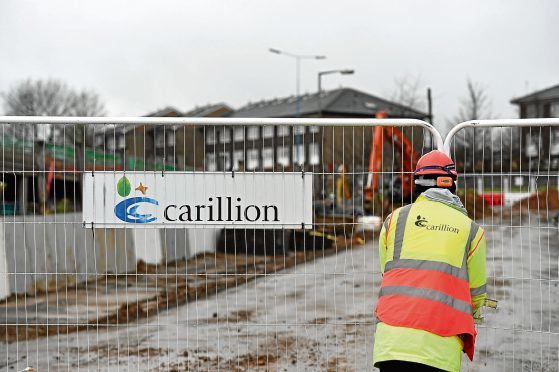It would be laughable if it wasn’t so serious.
Richard Howson – the former chief executive of business support services group Carillion whose departure was confirmed on the day the group’s issued its first major profits warning last July – apparently remains on the company’s payroll.
In fact he’s due to be paid hundreds of thousands of pounds through to October this year.
That’s despite the fact former Stagecoach and Weir Group boss Keith Cochrane had to be parachuted in to perform his duties last year in a desperate bid to turn around the corporate oil tanker as it headed for the rocks.
In October, Carillion announced its search for a new permanent boss had ended with the appointment of Wates Group CEO Andrew Davies.
He was initially due to take up office on April 2, but the gathering storm – including the company admitting in November it expected to breach its financial covenants come December 31 – saw that date brought forward.
Again, laughably, Mr Davies is officially due to start work next Monday.
Carillion is now in the hands of the Official Receiver and will be broken up in the hope the sum of its parts are worth more than the whole right now.
It is a sad state of affairs and one in which you have to question the UK Government’s role.
It awarded contract after contract to Carillion despite – or a cynic might suggest because of – knowing the group was walking the financial tightrope.
In turn, hundreds of smaller sub-contractors were awarded work by Carillion and thousands of suppliers fulfilled invoices for goods and services.
With the government as the client, those small businesses rightly had an expectation they would be paid.
The government has guaranteed the public sector contracts, but what of the other companies brought in to assist Carillion with private sector work?
Despite the profits warning, the optics from a small supplier’s point of view must still have been good.
After all, those orders were coming from a major multinational that continued to win work on flagship, government-backed multi-billion infrastructure projects such as HS2.
But those optics were wrong and many have now been left high and dry and face making tough decision of their own if they are to survive.
In addition to the thousands of directly employed Carillion staff, many more good workers in the second and third tier of the economy could lose their livelihoods.
Not for the first time has the UK economy and its supply chain – the oft forgotten workhorses of the economy – been very badly let down indeed.
business@thecourier.co.uk
